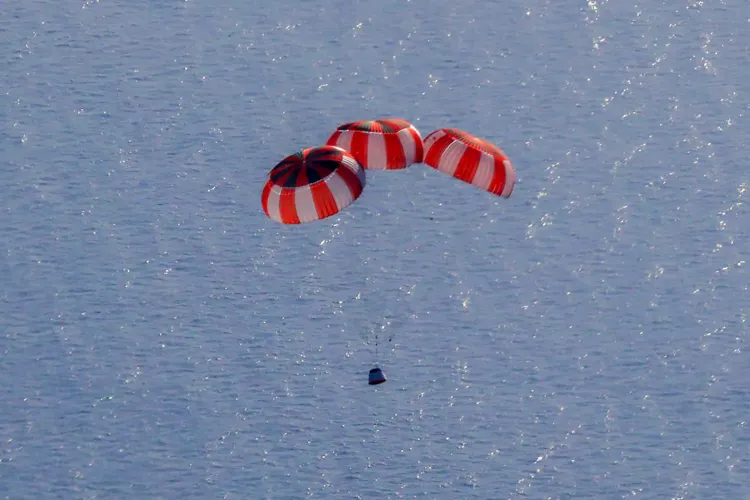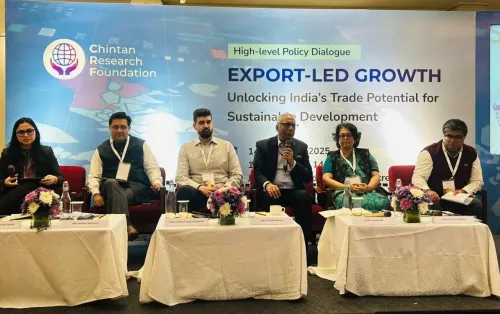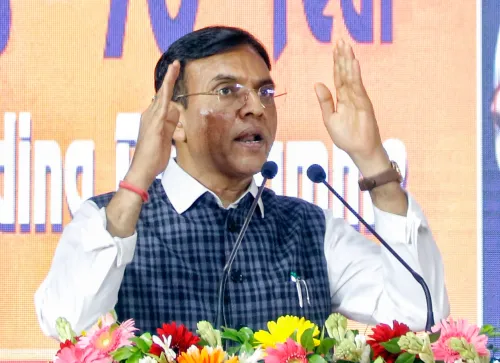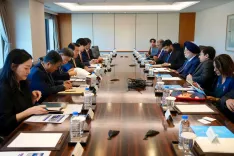How Will the CSIR-ISRO Space Meet Propel India's Human Spaceflight Research?

Synopsis
Key Takeaways
- CSIR and ISRO collaborate on human spaceflight.
- Event scheduled for November 17 in Bengaluru.
- Focus on microgravity studies and space technology.
- Participation from international space agencies.
- Expected outcomes include a roadmap for future missions.
New Delhi, Nov 14 (NationPress) The Council of Scientific and Industrial Research (CSIR) alongside the Indian Space Research Organisation (ISRO) is set to host a collaborative space conference in Bengaluru next week aimed at enhancing partnerships in human spaceflight research, microgravity studies, and innovations in space technology, as per an official announcement made on Friday.
Scheduled for Monday, November 17, this significant event is anticipated to attract between 150 to 200 participants, including scientists, technologists, astronauts, and delegates from various national and international organizations.
Among the dignitaries in attendance will be the Consul General of France in Bengaluru, as well as officials from DRDO, ISRO, IISc, IAF, and specialists from esteemed organizations such as the European Space Agency (ESA), Japan Aerospace Exploration Agency (JAXA), and the French Space Agency (CNES).
The CSIR–ISRO Space Meet 2025 aims to merge CSIR's diverse research capabilities with ISRO's technology-driven objectives, according to the Ministry of Science and Technology.
Topics of discussion will include collaborative efforts in human spaceflight physiology, biomedical instrumentation, materials science, life sciences in microgravity, and advanced systems for spacecraft maintenance, as noted in the announcement.
Participants will delve into the challenges of cultivating plants in space, the creation of space food, developments in microfluidics, innovations in ceramic metamaterials, and methods for preventing microbial corrosion.
This event is poised to strengthen research collaborations among India's leading institutions and stimulate progress in space medicine, human factors engineering, and technology applications that benefit society.
The discussions are expected to outline a collaborative strategy for future human spaceflight missions and pinpoint new opportunities for joint research and development in the field of space science and technology.
Recently, ISRO chief Dr. V Narayanan provided updates on the Gaganyaan mission, highlighting that the project is approaching completion, with around 85 to 90 percent of subsystem-level tasks finalized.
He stated, “We are currently engaged in integrated testing and validating software. Three uncrewed missions will be executed prior to the crewed flight to guarantee the utmost safety and system reliability,” as reported to IANS.









